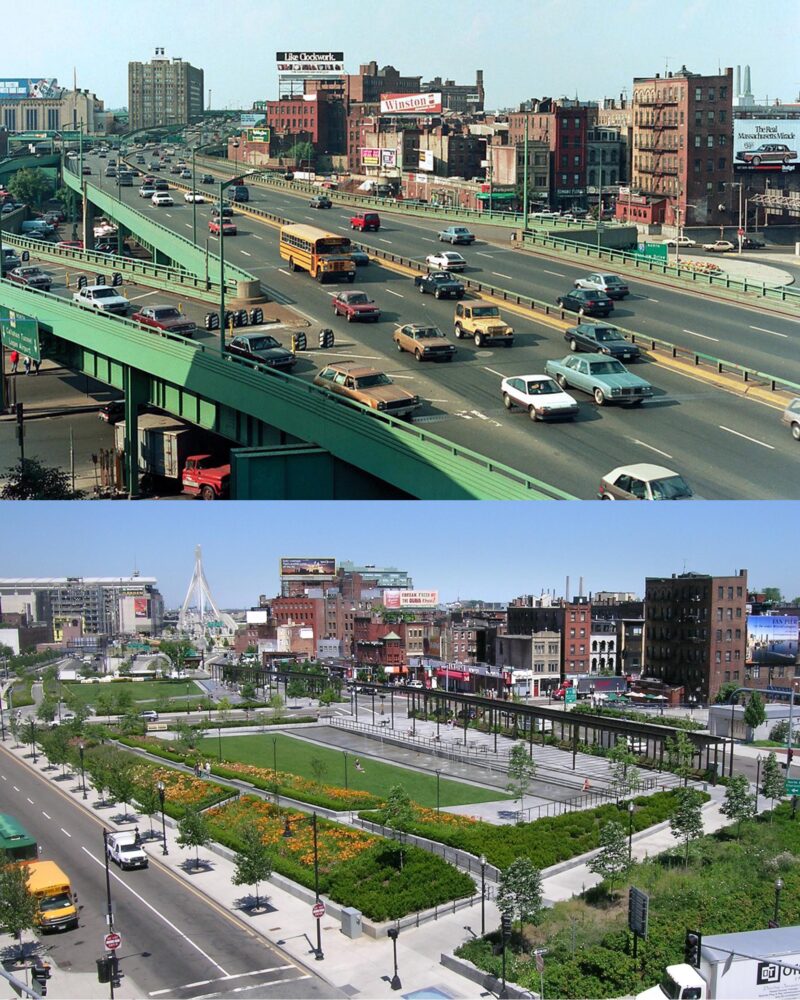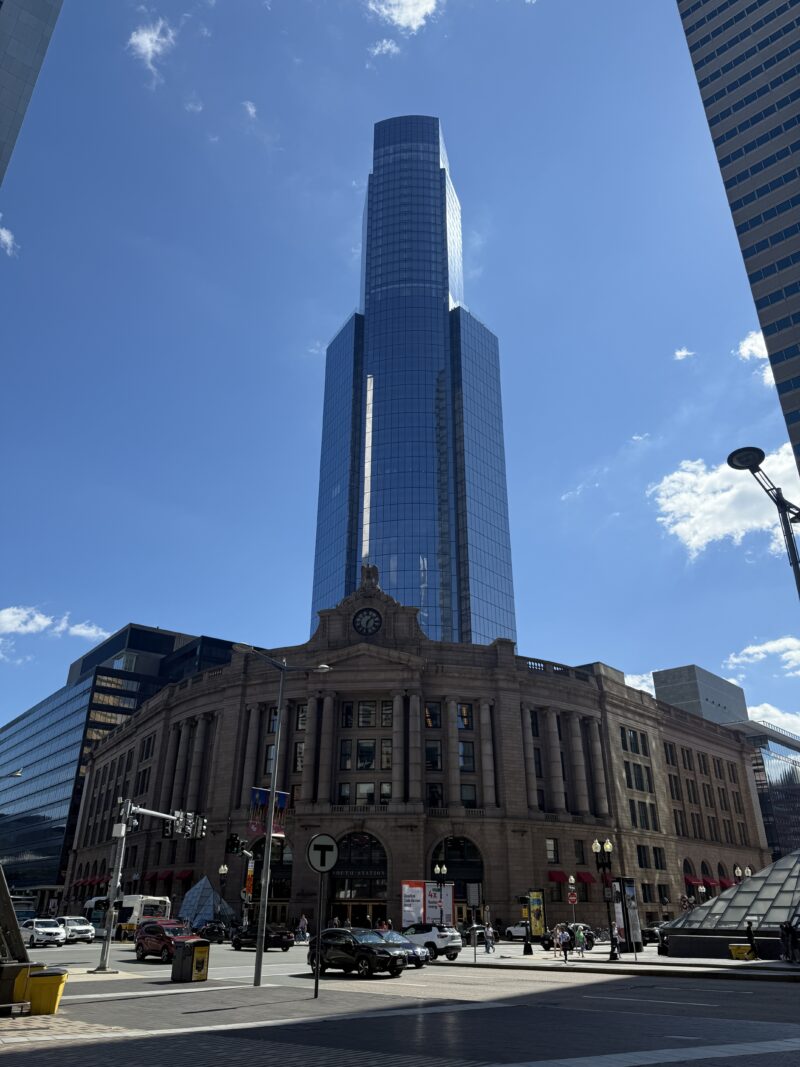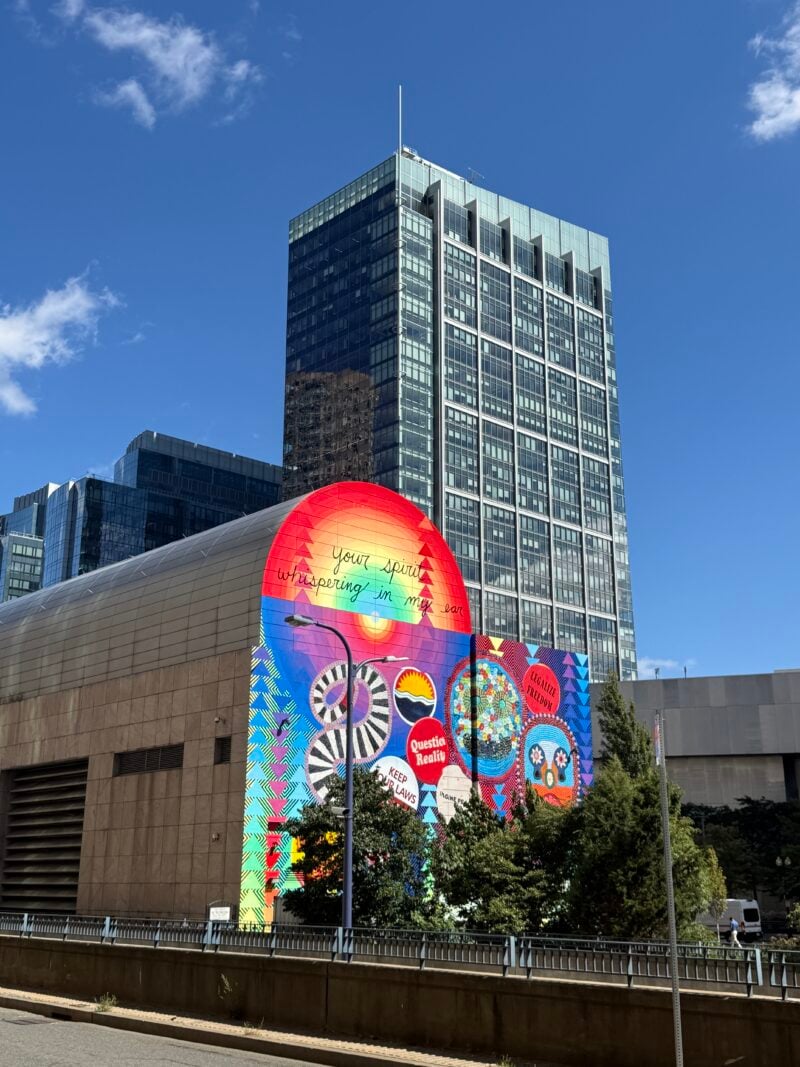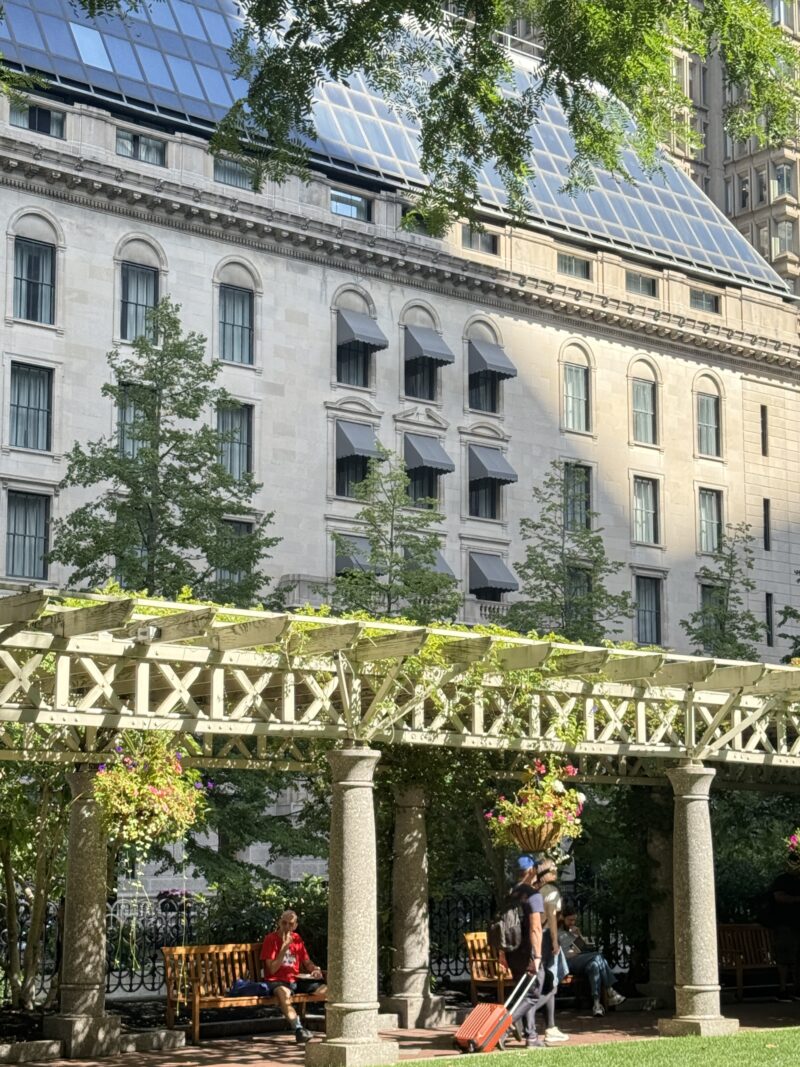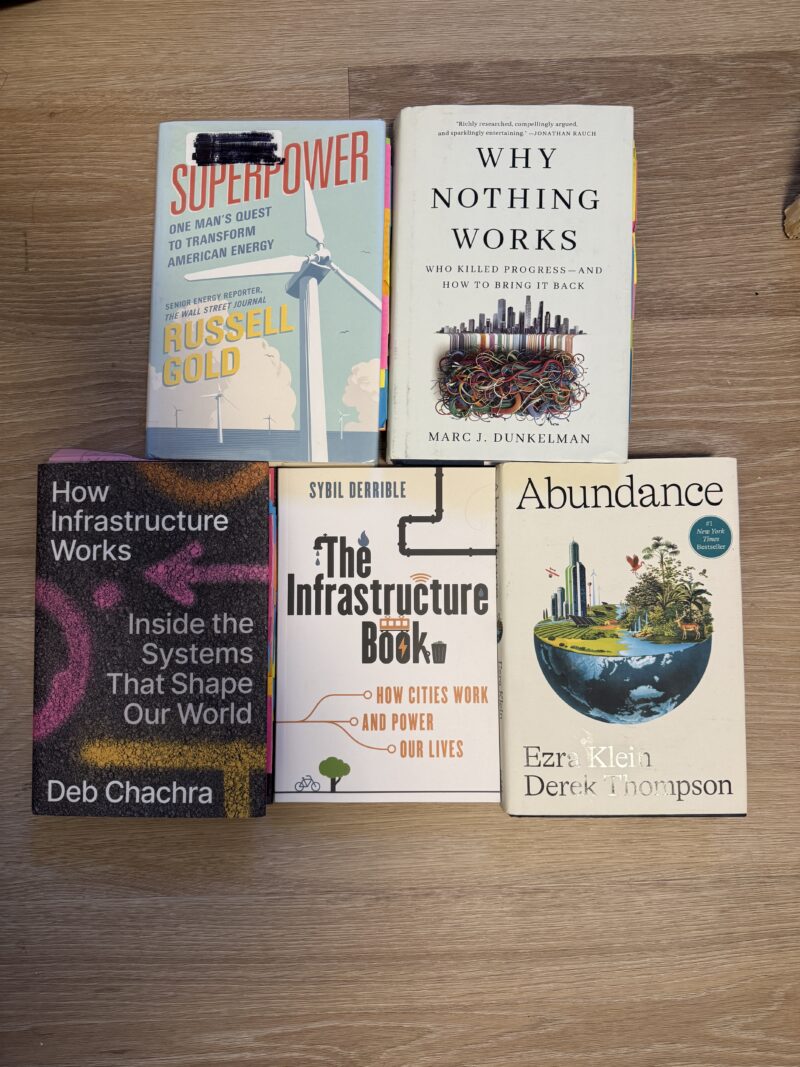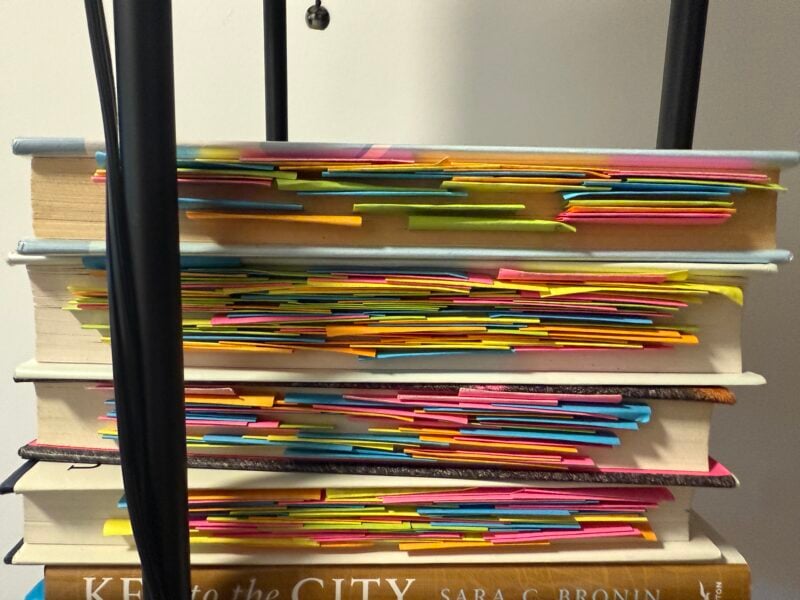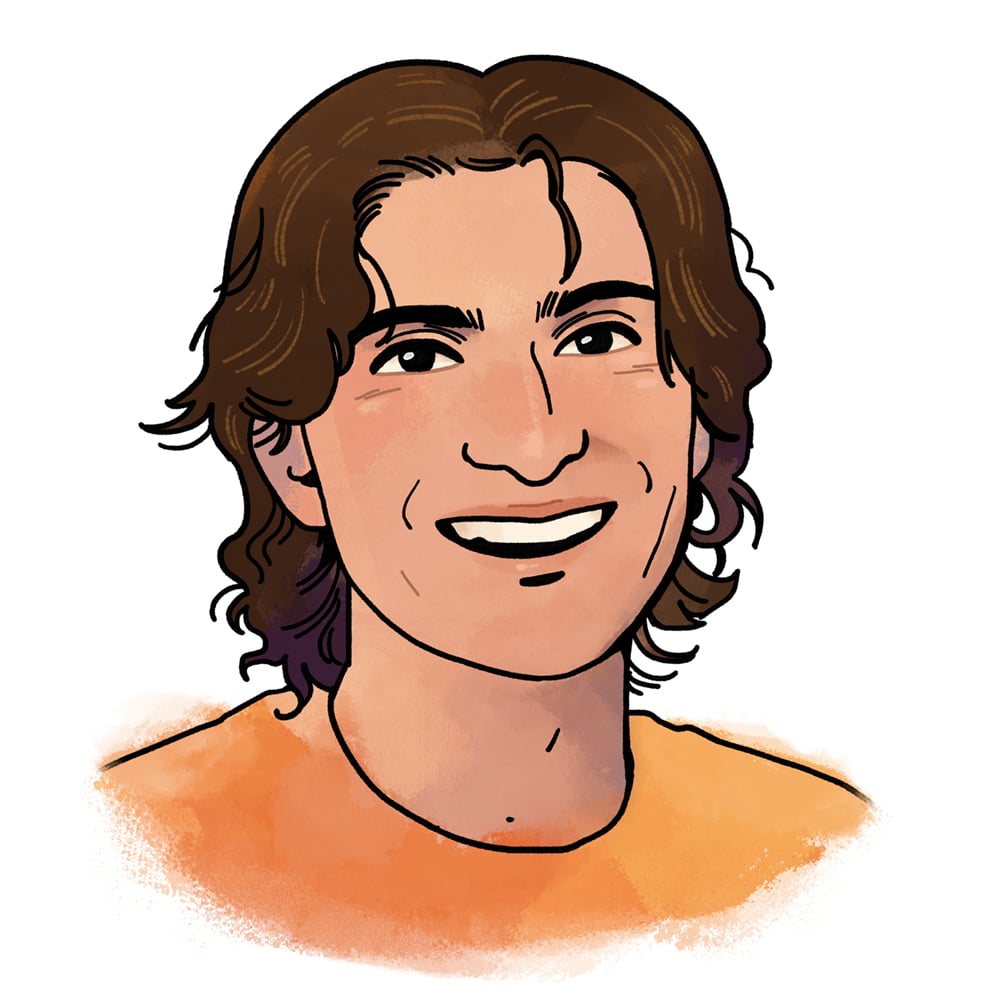
classes i’m taking! (fall 2025) by Victor D. '27
highways, storks, and movies
When somebody asks me “What classes are you taking?” my mind completely blanks. Unless I’m actively working on an assignment for that course, it will take me a while to dig through my mental archive to remember all the classes I’m taking. It’s like I lack object permanence, except for my classes. Coursework (im)permanence. Hopefully by writing this, I’ll form the relevant neural pathways to be able to readily recall this information the next time the question comes up, instead of “🤔 I don’t remember.”
G = grad course
11.540 (G) Urban Transportation Planning and Policy
Transportation was what got me into urban planning in the first place! So I decided to register for this course as a way of returning to my roots.
So far, we’ve discussed the history of transportation in the United States, accessibility, agglomeration effects, governance structures, and transportation funding sources. Our last lecture featured a special guest: Fred Salvucci, the so-called man behind the Big Dig. The Big Dig is one of the largest and most convoluted infrastructure projects in US history most famous for burying a highway and putting a park on top of it (gross oversimplification).
This course is taught by James Aloisi, former Massachusetts Secretary of Transportation and East Boston native. Which is really awesome, because he always has some story to tell about every corner of the city, some of which he shared with us during a class walk we took together in Downtown Boston. Some pictures from the class walk:
11.381 (G) Infrastructure Systems in Theory and Practice
Taught by David Hsu, this course is essentially a reading seminar—there are no assignments beyond reading an entire book per week and discussing it for 3 hours every Wednesday morning. I read the shock on people’s faces when I tell them about the structure of this class; reading an entire 200-350 page book per week is, after all, a ~10-hour ordeal.
But I’ve been liking it a lot so far, especially since it forces me to continue my reading streak that I started this summer while in Brazil. When I first got to MIT, I largely stopped reading books (it’s difficult to stay committed and motivated to the project of reading an entire book while balancing PSETs, jumbles of PDF readings for various classes, clubs, a social life…) Here are the books we’ve read so far:
Most of the systems that we take for granted as a part of our daily life either barely existed or did not exist at all for most of human history. Streets were lit by gas lamps and homes by candlelight. Thomas Jefferson wrote in 1796 about the ink in his pen freezing during the winter (no central heating). At the beginning of the 20th century, Ford’s famous Model T had not entered production.
Still, these systems are not universally available. Even cities with running water often struggle to reliably fill reservoirs. Many people do not have access to electricity. And furthermore, our fossil fuel based infrastructural and industrial world is what is causing climate change.
So part of this class is looking toward the future to imagine what tomorrow’s infrastructural world will look like (one that is hopefully green and equitable), and how to develop a political program that will get us there.
11.011 The Art and Science of Negotiation
This class is pretty intense: around 80 pages of reading per week with reading quizzes every class; weekly negotiation exercises with new partner(s); and a two-page, 600-700 word journal about our negotiation exercise experience due each Friday. It’s really fun though! Content includes negotiation strategies, psychology, dispute resolution, and power dynamics. The course material is directly applicable to my day-to-day life (conflict resolution, scoring opportunities, developing self-confidence, etc.), which leaves me brimming with questions for the professor, Bruno Verdini. His advice is superb and refreshing. The journals require rather deep personal introspection on your values, personality, goals, skills, and deficits. This course has a reputation for being one of the most impactful courses you can take at MIT and I’m definitely starting to understand why.
6.7960 (G) Deep Learning
My only “technical” course this semester and will have my one exam of the semester. I decided to take a leap with this class; I haven’t taken a machine learning (ML) course before but I have some experience from 18.C06 (Linear Algebra and Optimization) and my research last year. So far we’ve covered several neural network architectures: Multilayer Perceptrons (MLPs), Recurrent Neural Networks (RNNs), Autoencoders, and Transformers.
The course is taught by several professors but I’ve especially enjoyed Sara Beery’s lectures. She works with ecologists and taxonomists, professionals who classify living organisms based on their behavior and characteristics. On Looking01 The astute reader will note I referenced this book in my first blog uses the concept of “Visual search” from psychology to understand how our experiences come to shape our search image, which is essentially what our attention notices in an environment. If I were to look at a rock, I’d probably be able to tell you whether it’s igneous, sedimentary, or metamorphic, but a trained geologist could likely tell you exactly what kind of rock it is, when it was formed, where it’s from, and even if it has traces of biological material.
An untrained eye might only see a bird here. Perhaps they might even know the bird is a stork. But a taxonomist with an expert eye for storks would likely be able to tell you exactly what kind of stork it is. This is the example Beery used to raise this classification issue, as our experience and background impact how we see the world—how we classify the world. In other words, it isn’t such a straightforward task to decide how we program our computer vision models to classify images.
21L.639 Globalization and its Discontents: Spanish Speaking Nations
This is the first course in Spanish I’m taking for credit at MIT! We have either a movie or reading assignment that we discuss each session. Over the summer, I realized I don’t know how to discuss movies that well; it’s not a form of media that I regularly engage in. So I made an effort while in Brazil to watch various Brazilian films to 1. practice my Portuguese input and 2. force myself to write reviews about what I watched (and I made a Letterboxd to post them). Thus, I’ve really enjoyed analyzing the movies in this course, as I’m developing an eye and vocabulary for film. We’ve watched Amores Perros (Mexico), Zama (Argentina), La Playa DC (Colombia), and 7 Cajas (Paraguay) so far.
The course is taught by Joaquin Terrones, who was actually an MIT undergrad in literature! Since he’s spent quite a lot of time in Brazil, I appreciate that he speaks Portuguese with me outside of class :).
6.UAR Seminar in Advanced Undergraduate Research
SuperUROP deserves a blog to itself, but the tl;dr is that this year-long course covers research methods and features guest speakers that discuss their research in different areas (so far in quantum computing, medicine, machine learning, etc.)
Notes:
- I’ve gone all-in on urban planning coursework this semester! Recently, I’ve been having a crisis about what I really want to do. Urban planning is such a wide field: housing, energy, transportation, mobility, governance, design, geography, mapping… My coursework will hopefully help guide me to some more concrete answers.
- PSETs and exams give me a lot of anxiety. A lot of my time working on a PSET often isn’t even solving it: it’s meticulously (not necessarily bad) and obsessively (bad) checking my answers over and over again to make sure they are correct. Exams are worse. While PSETs have a definite start and end, it’s hard for me to gauge how much I should study for an exam. Maybe that one more hour of studying is the difference between an A and a B. I end up putting off other important responsibilities to study, which then puts me in a vicious cycle of constantly trying to catch back up, while also balancing exams across other classes. I think I was more successful at not getting overly stressed by PSETs and exams last semester because I set hard limits on how long I could wait to submit a PSET and how much I was willing to study. Still, last semester was really stressful at times. This semester, I made a schedule that diverges from the PSET paradigm and emphasizes discussion/reading-based learning. Even though it’s a lot more time consuming, it’s very rewarding! I will likely have to return to the world of exams and PSETs next semester, but it’s nice to have this data point about what kind of coursework works best for me.
- The astute reader will note I referenced this book in my first blog back to text ↑
